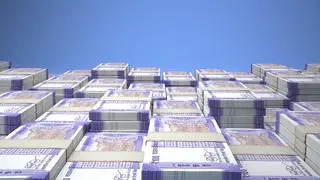The Election Commission’s decision to raise the spending limit for candidates contesting the Lok Sabha poll has generated an animated but misplaced debate. Instead of triggering a general discussion about election expenditure, the focus of the debate has been far too specific and largely irrelevant. The main question raised has been whether the hike from ₹40 lakh to ₹70 lakh is much too liberal. On the face of it, perhaps yes. After all, the ceiling was raised from ₹25 lakh to ₹40 lakh only in 2011. In effect, the expenses that candidates can incur have trebled in the last five years — twice as much as the inflation rate. The rationale behind the ‘generous’ ceiling is that if the bar is set high enough, candidates will be encouraged to come clean with their expenses and be less tempted to fudge. But this reasoning is somewhat naïve in an environment where actual election expenditure far outstrips official limits. Our politicians don’t think twice about flouting the rules. Data from the 2009 Lok Sabha election reveals that 20 per cent of the candidates did not even bother to file their statement of poll expenses, even though it is mandatory under the Representation of the People Act. Of the 5,400 who did, most reduced it to a farce, claiming that they spent far less than the permissible sum.
The average official expenditure of a candidate was less than ₹15 lakh each in 2009. This unbelievably small figure only proves what is already known — that almost everyone fudges. Political parties are quite adept at getting their ‘supporters and well-wishers’, who aren’t directly accountable to the EC, to defray their campaign costs. Some candidates have even gone so far as to admit (privately) to the EC that a sum of about ₹3 crore is what one really needs to contest the Lok Sabha poll today.
The EC has been inducting expenditure observers and surveillance teams in each constituency to watch over campaigning politicians. It has plans to work with the Income Tax Department and the Financial Intelligence Unit to monitor suspicious cash transactions during the polls. While these measures are commendable, they are unlikely to check election expenditure to the limits the EC sets. There is a lesson to be learnt here: that the real issue goes well beyond how much a candidate spends. What is germane is what he or she spends it on. In other words, the crux of the problem lies with some kinds of election expenditure — particularly the use of liquor and money to buy votes. The EC should focus on violations that truly overturn the level playing field rather than fiddle with expenditure caps.






Comments
Comments have to be in English, and in full sentences. They cannot be abusive or personal. Please abide by our community guidelines for posting your comments.
We have migrated to a new commenting platform. If you are already a registered user of TheHindu Businessline and logged in, you may continue to engage with our articles. If you do not have an account please register and login to post comments. Users can access their older comments by logging into their accounts on Vuukle.